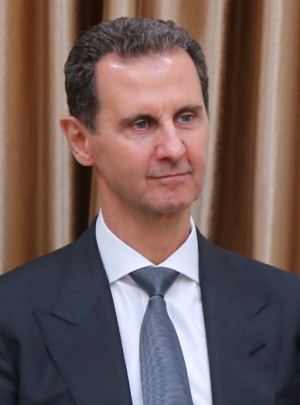The fall of the Bashar al-Assad regime in Syria has evoked deep concern in India, prompting New Delhi to respond cautiously to the rapidly changing events in the region.
In its first statement after Assad’s ouster, India’s Ministry of External Affairs (MEA) called on “all parties to work towards preserving the unity, sovereignty and territorial integrity of Syria” and for a “peaceful and inclusive Syrian-led political process respecting the interests and aspirations of all sections of Syrian society.”
New Delhi refrained from taking sides in the unfolding situation in Syria.
India’s immediate concern is the safety of its nationals in the country. According to the MEA, there are around 90 Indians in Syria. “We are closely following the situation,” MEA spokesperson Randhir Jaiswal said, adding that the Indian “mission remains in close contact with our nationals for their safety and security.”
Much uncertainty looms over Syria. While the Assad regime has fallen and the former Syrian president is reported to have received sanctuary in Russia, who or what will succeed him is not clear. A motley group of Islamist groups led by the al-Qaida-affiliated Hayat Tahrir al-Sham (HTS) is expected to form the next government in Damascus. The political transition may not be a smooth or peaceful process, as a power struggle within the HTS cannot be ruled out.
Moreover, regional and global powers, including Turkiye, Saudi Arabia, Iran, Lebanon, Russia, and the United States, which have been backing different armed militias in the Syrian civil war over the past decade, can be expected to stoke violence as they seek to install their protégés in the hot seat in Damascus. This could see violent gun battles break out on Syrian streets in the coming weeks and months.
Should violent unrest persist, India will consider evacuating its nationals from Syria. But this should not be a major challenge for New Delhi as it has vast experience in evacuating hundreds of thousands of Indians from other conflict zones.
India’s main concern with the fall of Assad is that it has lost a friend in the Muslim world.
Unlike other Islamic nations that have backed Pakistan on the Kashmir question, Syria has been steadfast in its support of India, asserting that India has a right to resolve the Kashmir issue in “any manner” and “without external assistance.” In 2017 Assad expressed solidarity with India in its fight against terrorism. “In India, terrorism is used for political purposes, and the situation is no different in Syria,” Assad told a Indian television channel in 2017.
When the rest of the Muslim world strongly castigated India’s decision to revoke Jammu and Kashmir’s autonomy by abrogating Article 370 in 2019, Syria dismissed it as India’s “internal matter.” “Every government has the right to do whatever it likes on its land to protect its people. We are always with India on any action,” Riad Abbas, Syria’s ambassador to India at the time, said.
India will be worried about the position that the post-Assad dispensation will take on Kashmir.
According to Kabir Taneja, author of “The ISIS Peril: The World’s Most Feared Terror Group and Its Shadow on South Asia,” “One thing that works for India right now is that even non-state militant actors usually don’t have problems with India, and see it as neutral. This has helped navigate sectarian divisions in the region based around protection of its citizens.”
While this assessment bodes well for India, Indian officials are less optimistic. “The HTS is backed by Turkiye, which is close to Pakistan. If the new regime comprises of the HTS it may not take India’s side on India-Pakistan issues,” an Indian intelligence official told The Diplomat. Post-Assad Syria can be expected to back Pakistan on the Kashmir dispute.
Another concern is that the ongoing instability in Syria and the rise of Islamist hardliners there will give a fillip to global jihadist and Islamist militant groups. When the Taliban captured power in Afghanistan in August 2021, it was celebrated by Islamist militants worldwide. If the Taliban could force the U.S. out of Afghanistan, ousting smaller powers like India from Kashmir would not be difficult, was their argument.
The HTS’ victory over the Russia and Iran-backed Assad could similarly boost Islamist militants not just in the immediate region but beyond — in South Asia, for example. Already Jammu and Kashmir is witnessing a surge in militancy. The fall of Assad could provide a fillip to anti-India militant groups operating there, the Indian intelligence official warned. Additionally, it could lead to a fresh flow of Indian Muslim recruits to Syria’s battlefields.
India will also be worried about the fate of its investments in Syria, especially those in the oil sector. ONGC Videsh Limited (OVL) has a 60 percent participating interest in Exploration Block-24 near Deir-ez-Zour in northern Syria. Then ONGC India and CNPC China jointly acquired the 37 percent stake of PetroCanada in the Syrian Al Furat Petroleum Company. While India has been facing difficulties in carrying out its operations there due to U.S. and EU imposed sanctions on Syria, the fragile situation in post-Assad Syria will further delay the operationalization of these investments.
The fall of Assad has also dramatically altered regional geopolitical dynamics. His ouster has severely undermined the influence and stature of Russia and Iran in the region, and Moscow and Teheran are key Indian strategic partners. It could impact India’s role in the strife-torn region.
































